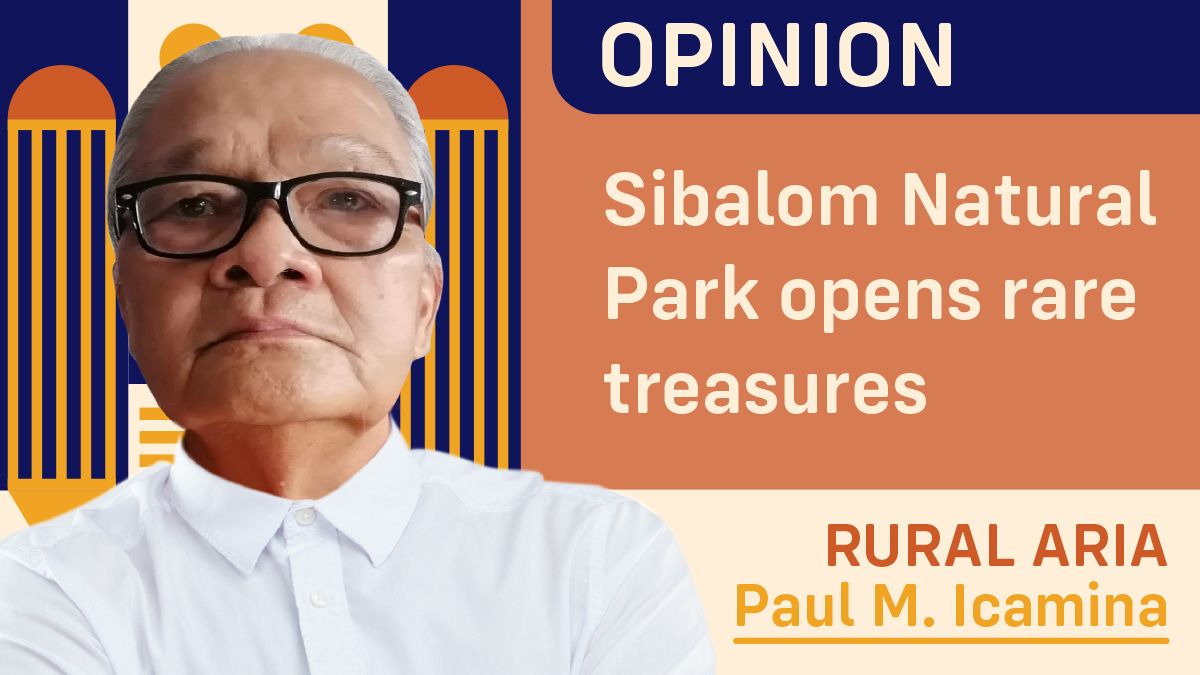The Sibalom Natural Park in Antique is home to the Mau-It or Rainbow River. Its name comes after the boulders and rocks colored reds, blues, greens, oranges, and all hues of the rainbow along its banks and underneath clear water which abound with semi-precious stones like onyx, quartz, and jade. Only photographs and selfies can be taken; stones are not souvenirs to take home.
The natural park is also home to the world’s largest, smelliest flower. It is the Rafflesia (Rafflesia speciosa), one of 13 Rafflesia species discovered in the Philippines. Also called the Corpse Flower or the carrion plant, it attracts pollinators like flies and carrion beetles through its foul odor described as “more repulsive than any buffalo carcass”.
Threatened Existence
The Sibalom Natural Park is the playing, feeding and breeding ground of the Visayan Spotted Deer and Warty Pig, Walden’s and Tarictic hornbills – all rare and whose existence is threatened.
Its spotted Wood Kingfisher (Actenoides lindsayi) is found only in the Philippines. There are at least 60 bird species, from hornbills to tiny flowerpeckers.
Monkeys frolic among giant Lauaan trees. Mahogany, teak, pine and gmelina prosper in about 500 hectares of the park.
Bato Pispis (Visaya for rock bird) is a cliff adorned with a peculiar pattern resembling a bird with outstretched wings. Swallows build nests on the cliff.
Protected Area
The 6,778-hectare Sibalom Natural Park was declared a protected area in 2000. The 1,378 feet Mt. Porras takes center stage as the highest point.
It proves that all is not lost with our country’s forests. After years of logging and deforestation, the park was reforested in the 1970s. Mt. Porras is green again, and so are the surrounding landscapes.
Since 2022, the Department of Environment and Natural Resources (DENR), Department of Tourism, United Nations Development Program’s Biodiversity Finance Initiative (UNDP-BIOFIN), the local governments of Sibalom and Antique province as well as communities, have been working to develop a world-class ecotourism package.
Locals Know Best
Volunteers from the Imparayan Bantay Gubat Association patrol the park.
“Locals know best, so they’re the ones who should identify and develop tourism spots,” says Boboi Costas who helped develop Cebu’s Bojo-Aloguinsan Mangrove River Tour which won the Best Tourism Village Award from the United Nations World Tourism Organization in 2021.
The best practices in Aloguinsan were brought to Sibalom and, hopefully, can be replicated in the country’s 247 protected areas.
Properly done, ecotourism combines conservation and livelihood,” says Anabelle Plantilla, UNDP-BIOFIN Philippines National Project Manager.
Tourism generates much-needed funds for park salaries and equipment, plus the maintenance and improvement of facilities, says Joery Oczon, Sibalom Park Deputy Superintendent.
Active in over 40 countries, UNDP-BIOFIN has been working since 2012 to help bridge the enormous gap needed to fund the world’s biodiversity projects.
UNDP-BIOFIN has been working in the Philippines since 2014, working closely with the DENR and many allies to finance the Philippine Biodiversity Strategy and Action Plan, the country’s roadmap to conserve biodiversity.
Its target is to narrow down the national budget gap for environmental projects, estimated at P19 billion yearly. The Sibalom Natural Park can help bridge this gap.
Your visit also helps. Sibalom Natural Park is four hours away from Boracay Island, two hours away from Iloilo City or 30 minutes from the Antique Airport in San Jose Buenavista.
Cottages (8 pax) can be rented for P1,500 a night. To visit the park, email SibalomNaturalPark@gmail.com or call +63926 358 1404.
#WeTakeAStand #OpinYon #OpinYonColumn #ColumnbyPaulIcamina #RURALARIA

